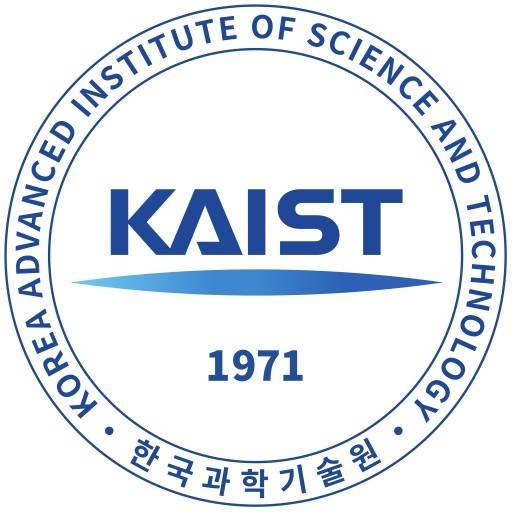Photos of university / #official_kaist
Program Description:
The Department of Mathematics at the Korea Advanced Institute of Science and Technology (KAIST) offers a comprehensive undergraduate program designed to equip students with a solid foundation in mathematical principles and their applications across various scientific and engineering disciplines. The program emphasizes both theoretical understanding and practical problem-solving skills, fostering analytical thinking and innovation. Students have the opportunity to explore pure mathematics, focusing on algebra, analysis, geometry, and topology, as well as applied mathematics topics such as computational mathematics, cryptography, data analysis, and mathematical modeling. The curriculum is structured to encourage interdisciplinary learning, enabling students to collaborate on research projects and industry-relevant challenges that require advanced mathematical techniques. Through coursework, laboratory experiments, and research seminars, students develop critical thinking, quantitative reasoning, and technical proficiency. The department maintains close ties with industry and academia, providing students with internship opportunities and exposure to cutting-edge research. Faculty members are distinguished researchers committed to mentoring students and advancing mathematical sciences. Graduates from the program are well-prepared for careers in academia, research institutions, finance, data science, technology companies, and other sectors where mathematical expertise is in high demand. The program aims to cultivate innovative thinkers capable of contributing to scientific breakthroughs and technological advancements, ensuring that graduates are competitive in global job markets and equipped to address complex real-world problems.
Mandatory General Courses
- Probability and Statistics
Elective Courses
- Analysis for Engineers
- Functional Analysis for Engineers
- Algebra for Engineers
- Applied Matrix Computation
- Number Theory
- Algebra I
- Algebra II
- Differential Geometry
- Differential Topology
- Algebraic Topology I
- Algebraic Topology II
- Real Analysis
- Complex Function Theory
- Wavelets and Applications
- Approximation Theory
- Symbolic Dynamics
- Probability Theory
- Queueing Theory with Applications
- Advanced Statistics
- Time Series Analysis
- Theory and Application of Machine Learning
- Methods of Applied Mathematics
- Numerical Analysis
- Stochastic Methods in Financial Mathematics
- Combinatorics
- Recent Progress in Applied Mathematics
- Topics in Mathematics I
- Topics in Mathematics II
- Algebraic Geometry I
- Algebraic Geometry II
- Lie Algebra
- Lie Groups
- Riemannian Geometry
- Symplectic Geometry
- Complex Geometry
- Geometric Topology
- Homotopy Theory
- Harmonic Analysis
- Functional Analysis
- Generalized Functions
- Partial Differential Equations
- Nonlinear Differential Equations
- Ordinary Differential Equations
- Stochastic Differential Equations
- Stochastic Processes
- Graphic Models in Statistics
- Multivariate Statistical Analysis
- Computational Models of Neural Networks
- Numerical Fluid Mechanics
- Mathematical Fluid Mechanics
- Numerical Partial Differential Equations
- High Speed Computation
- Computational Methods in Financial Mathematics
- Representation Theory
- Cryptology and Coding Theory
- Algebraic Number Theory
- Knot Theory
- Transformation Group Theory
- Ergodic Theory
- Mathematical Methods for Mechanics
- Finite Element Method
- Statistical Methods in Financial Mathematics
- Topics in Mathematics
- Topics in Mathematics I
- Topics in Mathematics II
Research
- M.S. Thesis
- M.S. Seminar
Requirements
- Application Form
- Statement of Financial Resources
- Letters of Recommendation
- Degree/Diploma
- Transcripts
- English Proficiency Test Reports (EPT)
TOEFL (PBT 560, CBT 220, IBT 83), IELTS 6.5, TEPS 599, TOEIC 720 or higher - Curriculum Vitae
- List of Honors and Awards
- Employment Certificate
- School Profile/Credit Rating System
- The application fee is KRW 80,000 or USD 80. Payment can be made by credit card or bank transfer after writing application form online. Please note that application fee is non-refundable and you cannot modify application form once you pay the application fee.
Scholarships
- KAIST International Student Scholarship
- Korean Government Scholarship (KGSP)
- Russian Government Scholarship – Global Education Program (GEP)
The Mathematics program at the Korea Advanced Institute of Science and Technology (KAIST) is a rigorous and comprehensive undergraduate and graduate curriculum designed to develop students' deep understanding of mathematical theories and their applications across various scientific and engineering disciplines. The program emphasizes both theoretical foundations and practical problem-solving skills, preparing students for careers in academia, research, industry, and government. Students enrolled in the program have access to state-of-the-art facilities and are taught by distinguished faculty members who are leaders in their respective fields, including pure mathematics, applied mathematics, computational mathematics, and data science. The curriculum covers core areas such as algebra, calculus, differential equations, geometry, probability, and statistics, along with advanced topics like mathematical modeling, numerical analysis, and machine learning.
KAIST's Mathematics program encourages interdisciplinary research, allowing students to collaborate with experts across departments such as Computer Science, Physics, and Engineering. This integration fosters innovative approaches to solving complex problems and promotes a holistic understanding of mathematical principles. The program also offers various opportunities for internships, research projects, and participation in international conferences, which enhance students’ practical experience and global outlook. Graduates from the program are well-equipped to pursue advanced degrees worldwide, contribute to scientific advancements, or work in analytical and data-driven roles in various industries.
The program’s structure combines coursework, research, and practical application to ensure a well-rounded education. In addition to classroom learning, students are encouraged to engage in mathematical research early in their studies, often participating in ongoing projects under faculty supervision. The program supports a vibrant academic community with seminars, workshops, and guest lectures from prominent mathematicians. International cooperation and exchange programs enable students to study abroad, gaining exposure to diverse perspectives and methodologies. Overall, KAIST’s Mathematics program aims to cultivate innovative thinking, analytical skills, and a passion for discovery in its students, preparing them to meet the challenges of the modern technological world.


